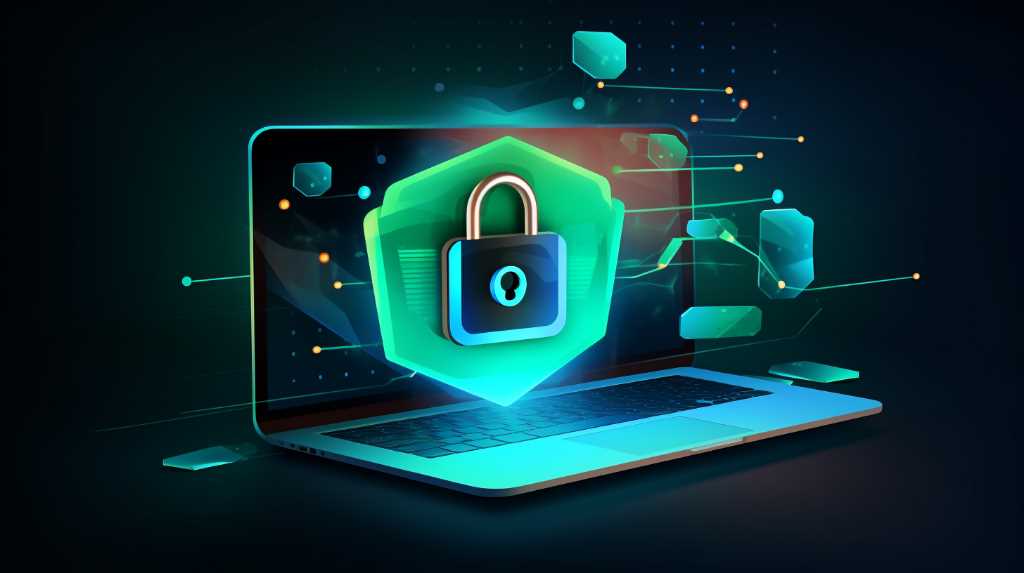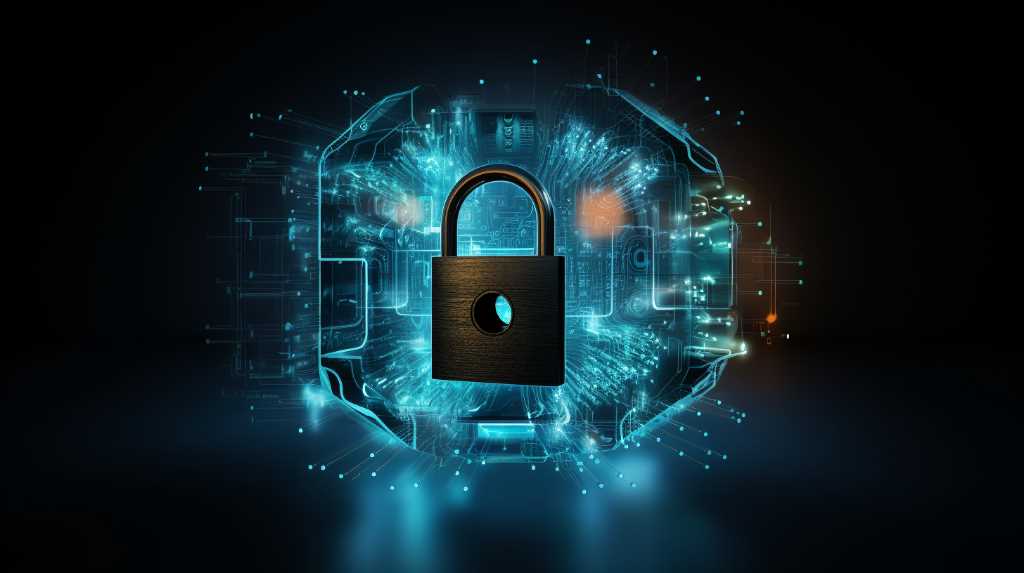Are you concerned about the security of your communication? In today's digital age, it's essential to prioritize secure communication practices. This article will guide you through the importance of secure communication and provide practical tips. Discover how using VPNs can encrypt your internet traffic and learn about encrypted email services and secure messaging apps. Don't compromise your privacy – learn how to verify the authenticity of your communication recipients. Safeguard your conversations and protect your information.
 Why is secure communication so important for you? In today's digital age, where technology has become an integral part of our lives, the need for secure communication has never been more crucial. Whether it's sending personal emails, conducting online transactions, or sharing sensitive information, ensuring that your communication remains private and protected is paramount.
By prioritizing secure communication, you safeguard your personal and financial information from falling into the wrong hands. Imagine the consequences of your private conversations being intercepted or your bank details being hacked. The potential for identity theft, financial loss, or even blackmail is a terrifying reality that can be avoided by employing secure communication practices.
Moreover, secure communication builds trust and credibility. Whether you're a professional communicating with clients or an individual interacting with friends and family, ensuring the confidentiality and integrity of your conversations instills confidence in others. It shows that you take privacy seriously and are committed to protecting sensitive information.
Lastly, secure communication promotes a safer and more secure online environment for everyone. By utilizing encryption and other security measures, you contribute to the overall protection of information and help prevent cybercrimes. By prioritizing secure communication, you not only protect yourself but also contribute to the collective effort of creating a safer digital space for all.
Why is secure communication so important for you? In today's digital age, where technology has become an integral part of our lives, the need for secure communication has never been more crucial. Whether it's sending personal emails, conducting online transactions, or sharing sensitive information, ensuring that your communication remains private and protected is paramount.
By prioritizing secure communication, you safeguard your personal and financial information from falling into the wrong hands. Imagine the consequences of your private conversations being intercepted or your bank details being hacked. The potential for identity theft, financial loss, or even blackmail is a terrifying reality that can be avoided by employing secure communication practices.
Moreover, secure communication builds trust and credibility. Whether you're a professional communicating with clients or an individual interacting with friends and family, ensuring the confidentiality and integrity of your conversations instills confidence in others. It shows that you take privacy seriously and are committed to protecting sensitive information.
Lastly, secure communication promotes a safer and more secure online environment for everyone. By utilizing encryption and other security measures, you contribute to the overall protection of information and help prevent cybercrimes. By prioritizing secure communication, you not only protect yourself but also contribute to the collective effort of creating a safer digital space for all.
 Are you aware of how VPNs can encrypt your internet traffic? Virtual Private Networks (VPNs) are powerful tools that can protect your online privacy and security. When you connect to a VPN, it creates a secure and encrypted tunnel between your device and the internet. This means that all the data you send and receive is encrypted, making it extremely difficult for anyone to intercept or decipher your internet traffic.
VPNs use advanced encryption protocols to scramble your data, making it unreadable to anyone without the proper decryption key. This ensures that your sensitive information, such as passwords, credit card details, and personal messages, remains safe from prying eyes.
Using a VPN also allows you to hide your IP address and location. By connecting to a server in a different country, you can mask your real IP address and appear as if you're browsing from a different location. This not only helps protect your privacy but also allows you to bypass geographic restrictions and access content that may be blocked in your region.
However, it's important to choose a reliable and trustworthy VPN provider such as NordVPN. Look for one that has a strong reputation for protecting user privacy and doesn't keep logs of your online activities. Additionally, make sure to keep your VPN client software up to date to ensure you have the latest security features and bug fixes.
Are you aware of how VPNs can encrypt your internet traffic? Virtual Private Networks (VPNs) are powerful tools that can protect your online privacy and security. When you connect to a VPN, it creates a secure and encrypted tunnel between your device and the internet. This means that all the data you send and receive is encrypted, making it extremely difficult for anyone to intercept or decipher your internet traffic.
VPNs use advanced encryption protocols to scramble your data, making it unreadable to anyone without the proper decryption key. This ensures that your sensitive information, such as passwords, credit card details, and personal messages, remains safe from prying eyes.
Using a VPN also allows you to hide your IP address and location. By connecting to a server in a different country, you can mask your real IP address and appear as if you're browsing from a different location. This not only helps protect your privacy but also allows you to bypass geographic restrictions and access content that may be blocked in your region.
However, it's important to choose a reliable and trustworthy VPN provider such as NordVPN. Look for one that has a strong reputation for protecting user privacy and doesn't keep logs of your online activities. Additionally, make sure to keep your VPN client software up to date to ensure you have the latest security features and bug fixes.
 If you value the security of your sensitive information, consider leveraging encrypted email services. In today's digital age, email has become a primary means of communication, and it's crucial to protect the confidentiality of your messages. Encrypted email services offer an added layer of security by encrypting the content of your emails, making it nearly impossible for unauthorized individuals to intercept or read your messages.
One of the main benefits of using encrypted email services is the protection of your sensitive data. Whether you're sending personal information, financial details, or confidential business documents, encryption ensures that only the intended recipient can access the content. This helps safeguard against cyber threats such as hacking, identity theft, and data breaches.
Additionally, encrypted email services often provide end-to-end encryption. This means that your messages are encrypted on your device and remain encrypted until they reach the recipient's device. This ensures that even if the email service provider or any other intermediaries are compromised, your messages remain secure.
Furthermore, some encrypted email services offer features like message expiration and self-destructing emails. These features allow you to set a specific time for the email to be automatically deleted from the recipient's inbox, adding an extra layer of confidentiality to your communications.
If you value the security of your sensitive information, consider leveraging encrypted email services. In today's digital age, email has become a primary means of communication, and it's crucial to protect the confidentiality of your messages. Encrypted email services offer an added layer of security by encrypting the content of your emails, making it nearly impossible for unauthorized individuals to intercept or read your messages.
One of the main benefits of using encrypted email services is the protection of your sensitive data. Whether you're sending personal information, financial details, or confidential business documents, encryption ensures that only the intended recipient can access the content. This helps safeguard against cyber threats such as hacking, identity theft, and data breaches.
Additionally, encrypted email services often provide end-to-end encryption. This means that your messages are encrypted on your device and remain encrypted until they reach the recipient's device. This ensures that even if the email service provider or any other intermediaries are compromised, your messages remain secure.
Furthermore, some encrypted email services offer features like message expiration and self-destructing emails. These features allow you to set a specific time for the email to be automatically deleted from the recipient's inbox, adding an extra layer of confidentiality to your communications.
 When it comes to protecting your communications, you can ensure security by using secure messaging apps. These apps are designed to provide end-to-end encryption, which means that your messages are encrypted on your device and can only be decrypted by the intended recipient. This ensures that even if someone intercepts your messages, they'll not be able to decipher the content.
Secure messaging apps also offer additional security features to further protect your communications. For example, many of these apps allow you to set a passcode or use biometric authentication to unlock the app. This adds an extra layer of protection in case your device falls into the wrong hands.
Furthermore, secure messaging apps often have features like self-destructing messages, which automatically delete messages after a certain period of time. This prevents your messages from being stored indefinitely on servers or devices.
It is important to note that not all messaging apps offer the same level of security. Before choosing a secure messaging app, make sure to do your research and choose one that has a strong track record of security and privacy.
When it comes to protecting your communications, you can ensure security by using secure messaging apps. These apps are designed to provide end-to-end encryption, which means that your messages are encrypted on your device and can only be decrypted by the intended recipient. This ensures that even if someone intercepts your messages, they'll not be able to decipher the content.
Secure messaging apps also offer additional security features to further protect your communications. For example, many of these apps allow you to set a passcode or use biometric authentication to unlock the app. This adds an extra layer of protection in case your device falls into the wrong hands.
Furthermore, secure messaging apps often have features like self-destructing messages, which automatically delete messages after a certain period of time. This prevents your messages from being stored indefinitely on servers or devices.
It is important to note that not all messaging apps offer the same level of security. Before choosing a secure messaging app, make sure to do your research and choose one that has a strong track record of security and privacy.
 To ensure that you're communicating with the intended recipient, you should always verify their authenticity through secure channels. Verifying the authenticity of communication recipients is crucial in preventing unauthorized access and protecting sensitive information.
One way to verify the recipient's authenticity is by using end-to-end encryption. This encryption method ensures that only the intended recipient can decrypt and read the message. By using secure messaging apps that support end-to-end encryption, such as Signal or WhatsApp, you can have confidence that your communication is secure and that you're indeed communicating with the intended recipient.
Another method to verify the authenticity of communication recipients is by using digital signatures. Digital signatures use cryptographic algorithms to validate the identity of the sender and ensure the integrity of the message. By digitally signing your messages and verifying the digital signatures of received messages, you can be certain that the communication is legitimate and hasn't been tampered with.
Additionally, it's important to establish secure channels for communication verification. This can include using secure email protocols, such as S/MIME or PGP, or using secure voice and video communication tools that offer strong authentication mechanisms.
To ensure that you're communicating with the intended recipient, you should always verify their authenticity through secure channels. Verifying the authenticity of communication recipients is crucial in preventing unauthorized access and protecting sensitive information.
One way to verify the recipient's authenticity is by using end-to-end encryption. This encryption method ensures that only the intended recipient can decrypt and read the message. By using secure messaging apps that support end-to-end encryption, such as Signal or WhatsApp, you can have confidence that your communication is secure and that you're indeed communicating with the intended recipient.
Another method to verify the authenticity of communication recipients is by using digital signatures. Digital signatures use cryptographic algorithms to validate the identity of the sender and ensure the integrity of the message. By digitally signing your messages and verifying the digital signatures of received messages, you can be certain that the communication is legitimate and hasn't been tampered with.
Additionally, it's important to establish secure channels for communication verification. This can include using secure email protocols, such as S/MIME or PGP, or using secure voice and video communication tools that offer strong authentication mechanisms.
Key Takeaways
- Secure communication protects personal and financial information from falling into the wrong hands.
- Using VPNs and encrypted internet traffic can create a secure and encrypted tunnel between your device and the internet, protecting your privacy and bypassing geographic restrictions.
- Leveraging encrypted email services can encrypt the content of your emails, making it nearly impossible for unauthorized individuals to intercept or read them.
- Secure messaging apps provide end-to-end encryption, ensuring only the intended recipient can decrypt the messages and protect communications from interception and unauthorized access.
Importance of Secure Communication
 Why is secure communication so important for you? In today's digital age, where technology has become an integral part of our lives, the need for secure communication has never been more crucial. Whether it's sending personal emails, conducting online transactions, or sharing sensitive information, ensuring that your communication remains private and protected is paramount.
By prioritizing secure communication, you safeguard your personal and financial information from falling into the wrong hands. Imagine the consequences of your private conversations being intercepted or your bank details being hacked. The potential for identity theft, financial loss, or even blackmail is a terrifying reality that can be avoided by employing secure communication practices.
Moreover, secure communication builds trust and credibility. Whether you're a professional communicating with clients or an individual interacting with friends and family, ensuring the confidentiality and integrity of your conversations instills confidence in others. It shows that you take privacy seriously and are committed to protecting sensitive information.
Lastly, secure communication promotes a safer and more secure online environment for everyone. By utilizing encryption and other security measures, you contribute to the overall protection of information and help prevent cybercrimes. By prioritizing secure communication, you not only protect yourself but also contribute to the collective effort of creating a safer digital space for all.
Why is secure communication so important for you? In today's digital age, where technology has become an integral part of our lives, the need for secure communication has never been more crucial. Whether it's sending personal emails, conducting online transactions, or sharing sensitive information, ensuring that your communication remains private and protected is paramount.
By prioritizing secure communication, you safeguard your personal and financial information from falling into the wrong hands. Imagine the consequences of your private conversations being intercepted or your bank details being hacked. The potential for identity theft, financial loss, or even blackmail is a terrifying reality that can be avoided by employing secure communication practices.
Moreover, secure communication builds trust and credibility. Whether you're a professional communicating with clients or an individual interacting with friends and family, ensuring the confidentiality and integrity of your conversations instills confidence in others. It shows that you take privacy seriously and are committed to protecting sensitive information.
Lastly, secure communication promotes a safer and more secure online environment for everyone. By utilizing encryption and other security measures, you contribute to the overall protection of information and help prevent cybercrimes. By prioritizing secure communication, you not only protect yourself but also contribute to the collective effort of creating a safer digital space for all.
Using VPNs for Encrypting Internet Traffic
 Are you aware of how VPNs can encrypt your internet traffic? Virtual Private Networks (VPNs) are powerful tools that can protect your online privacy and security. When you connect to a VPN, it creates a secure and encrypted tunnel between your device and the internet. This means that all the data you send and receive is encrypted, making it extremely difficult for anyone to intercept or decipher your internet traffic.
VPNs use advanced encryption protocols to scramble your data, making it unreadable to anyone without the proper decryption key. This ensures that your sensitive information, such as passwords, credit card details, and personal messages, remains safe from prying eyes.
Using a VPN also allows you to hide your IP address and location. By connecting to a server in a different country, you can mask your real IP address and appear as if you're browsing from a different location. This not only helps protect your privacy but also allows you to bypass geographic restrictions and access content that may be blocked in your region.
However, it's important to choose a reliable and trustworthy VPN provider such as NordVPN. Look for one that has a strong reputation for protecting user privacy and doesn't keep logs of your online activities. Additionally, make sure to keep your VPN client software up to date to ensure you have the latest security features and bug fixes.
Are you aware of how VPNs can encrypt your internet traffic? Virtual Private Networks (VPNs) are powerful tools that can protect your online privacy and security. When you connect to a VPN, it creates a secure and encrypted tunnel between your device and the internet. This means that all the data you send and receive is encrypted, making it extremely difficult for anyone to intercept or decipher your internet traffic.
VPNs use advanced encryption protocols to scramble your data, making it unreadable to anyone without the proper decryption key. This ensures that your sensitive information, such as passwords, credit card details, and personal messages, remains safe from prying eyes.
Using a VPN also allows you to hide your IP address and location. By connecting to a server in a different country, you can mask your real IP address and appear as if you're browsing from a different location. This not only helps protect your privacy but also allows you to bypass geographic restrictions and access content that may be blocked in your region.
However, it's important to choose a reliable and trustworthy VPN provider such as NordVPN. Look for one that has a strong reputation for protecting user privacy and doesn't keep logs of your online activities. Additionally, make sure to keep your VPN client software up to date to ensure you have the latest security features and bug fixes.
Leveraging Encrypted Email Services
 If you value the security of your sensitive information, consider leveraging encrypted email services. In today's digital age, email has become a primary means of communication, and it's crucial to protect the confidentiality of your messages. Encrypted email services offer an added layer of security by encrypting the content of your emails, making it nearly impossible for unauthorized individuals to intercept or read your messages.
One of the main benefits of using encrypted email services is the protection of your sensitive data. Whether you're sending personal information, financial details, or confidential business documents, encryption ensures that only the intended recipient can access the content. This helps safeguard against cyber threats such as hacking, identity theft, and data breaches.
Additionally, encrypted email services often provide end-to-end encryption. This means that your messages are encrypted on your device and remain encrypted until they reach the recipient's device. This ensures that even if the email service provider or any other intermediaries are compromised, your messages remain secure.
Furthermore, some encrypted email services offer features like message expiration and self-destructing emails. These features allow you to set a specific time for the email to be automatically deleted from the recipient's inbox, adding an extra layer of confidentiality to your communications.
If you value the security of your sensitive information, consider leveraging encrypted email services. In today's digital age, email has become a primary means of communication, and it's crucial to protect the confidentiality of your messages. Encrypted email services offer an added layer of security by encrypting the content of your emails, making it nearly impossible for unauthorized individuals to intercept or read your messages.
One of the main benefits of using encrypted email services is the protection of your sensitive data. Whether you're sending personal information, financial details, or confidential business documents, encryption ensures that only the intended recipient can access the content. This helps safeguard against cyber threats such as hacking, identity theft, and data breaches.
Additionally, encrypted email services often provide end-to-end encryption. This means that your messages are encrypted on your device and remain encrypted until they reach the recipient's device. This ensures that even if the email service provider or any other intermediaries are compromised, your messages remain secure.
Furthermore, some encrypted email services offer features like message expiration and self-destructing emails. These features allow you to set a specific time for the email to be automatically deleted from the recipient's inbox, adding an extra layer of confidentiality to your communications.
Ensuring Security With Secure Messaging Apps
 When it comes to protecting your communications, you can ensure security by using secure messaging apps. These apps are designed to provide end-to-end encryption, which means that your messages are encrypted on your device and can only be decrypted by the intended recipient. This ensures that even if someone intercepts your messages, they'll not be able to decipher the content.
Secure messaging apps also offer additional security features to further protect your communications. For example, many of these apps allow you to set a passcode or use biometric authentication to unlock the app. This adds an extra layer of protection in case your device falls into the wrong hands.
Furthermore, secure messaging apps often have features like self-destructing messages, which automatically delete messages after a certain period of time. This prevents your messages from being stored indefinitely on servers or devices.
It is important to note that not all messaging apps offer the same level of security. Before choosing a secure messaging app, make sure to do your research and choose one that has a strong track record of security and privacy.
When it comes to protecting your communications, you can ensure security by using secure messaging apps. These apps are designed to provide end-to-end encryption, which means that your messages are encrypted on your device and can only be decrypted by the intended recipient. This ensures that even if someone intercepts your messages, they'll not be able to decipher the content.
Secure messaging apps also offer additional security features to further protect your communications. For example, many of these apps allow you to set a passcode or use biometric authentication to unlock the app. This adds an extra layer of protection in case your device falls into the wrong hands.
Furthermore, secure messaging apps often have features like self-destructing messages, which automatically delete messages after a certain period of time. This prevents your messages from being stored indefinitely on servers or devices.
It is important to note that not all messaging apps offer the same level of security. Before choosing a secure messaging app, make sure to do your research and choose one that has a strong track record of security and privacy.
Verifying the Authenticity of Communication Recipients
 To ensure that you're communicating with the intended recipient, you should always verify their authenticity through secure channels. Verifying the authenticity of communication recipients is crucial in preventing unauthorized access and protecting sensitive information.
One way to verify the recipient's authenticity is by using end-to-end encryption. This encryption method ensures that only the intended recipient can decrypt and read the message. By using secure messaging apps that support end-to-end encryption, such as Signal or WhatsApp, you can have confidence that your communication is secure and that you're indeed communicating with the intended recipient.
Another method to verify the authenticity of communication recipients is by using digital signatures. Digital signatures use cryptographic algorithms to validate the identity of the sender and ensure the integrity of the message. By digitally signing your messages and verifying the digital signatures of received messages, you can be certain that the communication is legitimate and hasn't been tampered with.
Additionally, it's important to establish secure channels for communication verification. This can include using secure email protocols, such as S/MIME or PGP, or using secure voice and video communication tools that offer strong authentication mechanisms.
To ensure that you're communicating with the intended recipient, you should always verify their authenticity through secure channels. Verifying the authenticity of communication recipients is crucial in preventing unauthorized access and protecting sensitive information.
One way to verify the recipient's authenticity is by using end-to-end encryption. This encryption method ensures that only the intended recipient can decrypt and read the message. By using secure messaging apps that support end-to-end encryption, such as Signal or WhatsApp, you can have confidence that your communication is secure and that you're indeed communicating with the intended recipient.
Another method to verify the authenticity of communication recipients is by using digital signatures. Digital signatures use cryptographic algorithms to validate the identity of the sender and ensure the integrity of the message. By digitally signing your messages and verifying the digital signatures of received messages, you can be certain that the communication is legitimate and hasn't been tampered with.
Additionally, it's important to establish secure channels for communication verification. This can include using secure email protocols, such as S/MIME or PGP, or using secure voice and video communication tools that offer strong authentication mechanisms.

